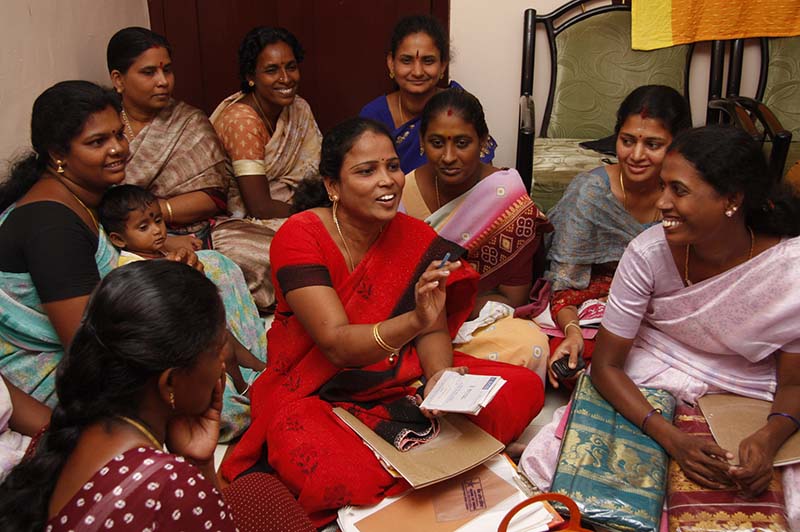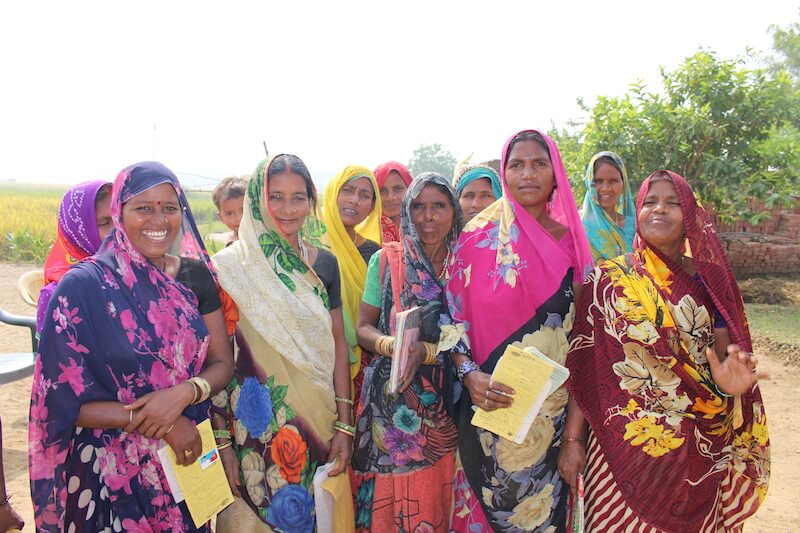Empowerment means you can make choices
The empowerment of women is a subject often discussed in the media and it’s uppermost in my mind as I manage a program in India to train women living in poverty to be health leaders in their communities. For me, empowerment occurs when a woman can make choices. When a woman can decide for herself. When she can choose what she wants to do with her life. What she wears. Where she goes. What she does.
The health leaders are very receptive to what we teach them about hygiene, prevention of common illnesses, sanitation, menstrual hygiene, nutrition and first aid. They are agents of change and we greatly respect them. It’s so inspiring to see how their self-belief skyrockets when we show them how confident we are of their capabilities. We just teach them about health and they do the rest themselves. They come up with solutions to problems and very sincerely go out and implement health programs in their communities.

These women are absolutely determined to better themselves and to bring about change. They are proactive, they reach out, they want to try out their skills. They want to change the lives of their families and communities. When they start the health leader training program, their motivation is a desire to learn new things that will help them bring about changes in their own lives and possibly earn an income after the training. However, as they progress in the program they realise their enormous potential to bring about beneficial change not only in themselves and their families but also in their communities. Once they start to implement health programs, they notice their position in their families and communities changes from being just another member of the community to a respected change leader in health. They have a voice! People listen to them. Value their advice. Value their opinions. They become highly respected agents of change. Over time, this becomes a key motivator for them. They realise they are empowered and their confidence continues to grow.
When many of these women start the health leader program, they are not allowed to make decisions for themselves or take part in the decision making of their families or households. However, that slowly changes over time and a tipping point frequently occurs when the women first administer first aid. Also, when they help families access government subsidies and low-cost microfinance loans to build toilets in their homes. At this point, family and community members realise the health leaders know a lot more than they do and their contribution is highly valued, especially when they save lives, which is often the case.

Once the health leaders’ families and neighbours see them ‘in action’, their admiration and respect for the health leaders grows. ‘In action’ may include seeing them wash their hands, cook more hygienically, deliver education programs, build toilets in their own homes, talk to government officials about ways to access subsidies to build toilets and helping neighbours to apply for toilet subsidies. Others also begin to wash their hands, improve their personal hygiene, build toilets and change the way they cook. The value of the women goes up and they become recognised as change makers and special. And the more other people respect the health leaders, the more their own self-respect grows.
I starkly remember one woman who had just learnt first aid. When one of her male relatives drank fertiliser, she immediately made a solution of salt and water and made him drink it so that he’d vomit. She took him to hospital and the doctor remarked that her presence of mind to make the salt water solution had saved the man’s life. As a result, her position in her family and neighbourhood grew exponentially!
We see this exponential growth in the health leaders’ reputation and respect over and over again. In another example, a woman who was training as a health leader was ridiculed and mocked by her brother-in-law, who was suspicious of her monthly excursions to the training centre for her course. Women are not usually allowed to leave their village without a male relative, so her husband accompanied her to the course for the first few months. However, once he got to know the other women and witnessed his wife’s activities at the training program, he began to trust her more, eventually allowing her to travel alone each month.
After four months of training, the woman was at home cooking dinner when she saw a child in the street crying. “What happened?” she asked the small child. “A scorpion bit me,” he whimpered. So, she immediately administered first aid and the child survived. The woman’s status in her family and local community suddenly increased. Her life dramatically changed. She applied for a loan to build a toilet in her home and she is encouraging other families to do the same. She regularly administers first aid and provides health education to her community and now she earns an income as a health leader. Instead of mocking her, her brother-in-law recommends her to his neighbours if they need first aid and he is very proud of her. Today when someone is injured or sick he immediately goes to them and explains: “My sister-in-law is trained in first aid. She is the only one who can save you!”
What a difference in one family! And in one woman’s life! And it’s repeated over and over in the lives of the many health leaders we train. Every day, I’m totally inspired by the women, by their courage, resilience, hard work and ability to bring about beneficial change in their own lives, in the lives of their families and local communities. These women go from being voiceless to empowered and I’m privileged to witness this transformation!